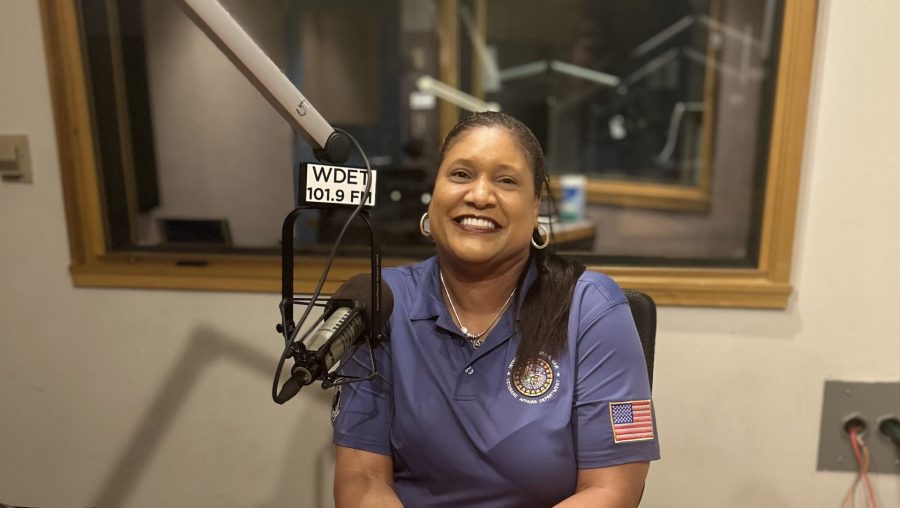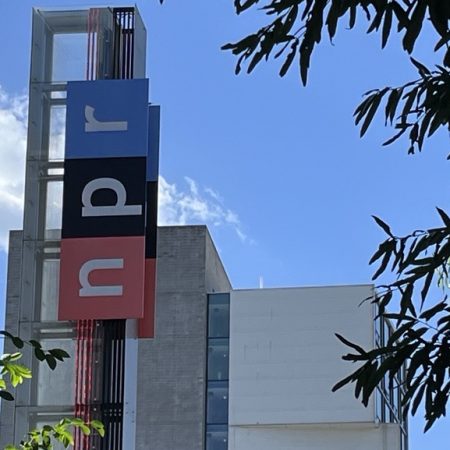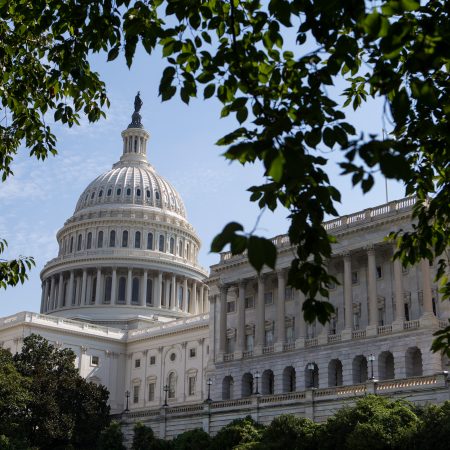Senators question Trump plan to kill federal funds for PBS, NPR and some foreign aid
Democrats and Republicans on the Senate Appropriations Committee pushed back against the Trump administration’s bid to kill $9 billion in federal funding that Congress already has approved for public broadcasting and international aid programs.
In President Trump’s request to Congress, sent last month, he justified the cuts because the targeted foreign aid programs were “antithetical to American interests,” and because “[f]ederal spending on [the Corporation for Public Broadcasting] subsidizes a public media system that is politically biased and is an unnecessary expense to the taxpayer.”
In a hearing Wednesday, Maine Republican Sen. Susan Collins, who chairs the committee, noted in the case of public broadcasting that 70% of the federal dollars targeted for rescission support local programming and emergency communications. She acknowledged concerns about NPR’s news coverage, which she said “for years has had a discernibly partisan bent.”
“There are, however, more targeted approaches to addressing that bias [at NPR] than rescinding all funding for the Corporation for Public Broadcasting,” Collins said.
In response to a later question, Office of Management and Budget Director Russell Vought testified that emergency broadcasting services funded by CPB would be safe. He also argued that because the CPB rescission doesn’t apply to the current fiscal year, local stations would have “ample time to adjust” and “they should be more judicious” about whom they pay for content.
Upon further questioning by Alaska Republican Sen. Lisa Murkowski, who has come out against the public broadcasting cuts, Vought committed to working with her on funding for rural stations. Yet he reiterated that Republicans have spent years trying to address public funding of content.
Murkowski later gave what she described as
“a little bit of a bird’s eye view” of the public radio situation in Alaska, which includes rural stations that receive up to 70% of their funding from the federal government. She went on to detail the vital services the station supply. “[A]lmost to a number, they’re saying that they will go under if public broadcasting funds are no longer available to them,” she said.
The vast majority of the $9.4 billion in cuts requested by the White House are to foreign aid programs addressing global public health, international disaster assistance and hunger relief.
But the package also includes a cut of nearly $1.1 billion in funding for 2026 and 2027 for CPB. The private nonprofit sends most of that money to local public television and radio stations across the country. PBS receives about 15% of its annual revenue through CPB, while NPR gets about 1% directly. Indirectly, NPR also receives some of the money going to member stations, who pay the network to air its programs.
The rescissions measure narrowly passed the House earlier this month, 214 to 212, with two key Republican lawmakers switching their votes from “no” to “yes” at the last minute to get it over the finish line. The House held a hearing earlier this year at which many Republicans accused PBS and NPR of being woke and biased against conservative viewpoints.
On Wednesday, Sen. Patty Murray of Washington, the panel’s top Democrat, questioned the legality of the White House’s request. Under the 1974 Impoundment Control Act, both chambers of Congress must approve such a request by a simple majority within 45 days of its submission—in this case, by July 18.
The cuts to CPB would “rip away funding that supports over 1500 local public TV and radio stations,” Murray said.
“Rural communities will be the hardest hit, not to mention our kids,” she said, adding that the cuts threaten “free, high-quality programming that is thoughtfully developed to get our kids thinking and to grow their curiosity.”
NPR in a statement said: “There is no substitute for the direct support and nationwide infrastructure and services funded by the Corporation for Public Broadcasting that enable these noncommercial stations to serve their communities.” In a statement after the House vote this month, PBS President and CEO Paula Kerger said: “Our work is only possible because of the bipartisan support we have always received from Congress, support we have earned by providing services that cannot be replaced by commercial media.”
Reporting by Scott Neuman, NPR
Trusted, accurate, up-to-date.
WDET strives to make our journalism accessible to everyone. As a public media institution, we maintain our journalistic integrity through independent support from readers like you. If you value WDET as your source of news, music and conversation, please make a gift today.Donate today »
The post Senators question Trump plan to kill federal funds for PBS, NPR and some foreign aid appeared first on WDET 101.9 FM.





